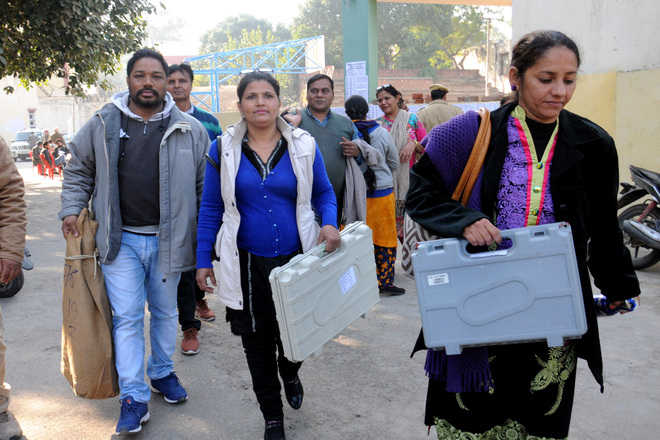West Bengal Teachers and BLO Duty: New Guidelines Explained
Teachers in West Bengal often find themselves on Booth Level Officer (BLO) duty during election periods, a responsibility that can sometimes conflict with their primary teaching roles. Understanding the new guidelines for BLO duty is crucial for educators across the state. This article delves into who is eligible for BLO duty and, more importantly, who may be exempt, providing clarity on these directives.
What is BLO Duty?
A Booth Level Officer (BLO) acts as a crucial link between the Election Commission of India and the voters at the grassroots level. They are instrumental in the preparation, revision, and maintenance of electoral rolls. BLOs ensure accurate voter information, facilitate voter registration, and address any discrepancies in the electoral data, playing a pivotal role in ensuring free and fair elections. While not a full-time electoral official, their civic duty is a significant contribution to the democratic process.
Why Teachers for BLO Duty?
Teachers, being government or semi-government employees, are often considered ideal candidates for BLO duty due to their familiarity with local communities and their widespread presence. Their educational background and organizational skills are seen as assets in managing electoral processes at the booth level. However, this deployment often sparks debate regarding its impact on academic continuity in schools.
New Guidelines: Who is Eligible?
The Election Commission of India (ECI) has outlined specific categories of government and semi-government employees who can be appointed as BLOs. While teachers are certainly on this list, it’s important to note that the guidelines emphasize "minimal" appointment of teachers. The comprehensive list of eligible categories includes:
- Teachers (both regular and contractual)
- Anganwadi workers
- Patwaris/Amins/Lekhpals
- Panchayat Secretaries
- Village Level Workers
- Electricity Bill Readers
- Postmen
- Auxiliary Nurses & Midwives (ANMs)
- Health workers
- Mid-day meal workers
- Corporation Tax Collectors
Who is Exempt from BLO Duty?
While teachers are on the list, recent guidelines and court observations highlight a push for minimizing their involvement. Here are the key exemptions and considerations:
- Minimizing Teacher Deployment: The ECI guidelines strongly suggest that teachers should be deployed as BLOs only when employees from other listed categories are unavailable. This aims to prioritize academic work and ensure that students' education is not disrupted.
- Deployment during Non-Teaching Hours: If teachers must be assigned BLO duty, it should ideally be during holidays, non-teaching hours, or non-teaching days to prevent loss of academic work.
- Single-Teacher Schools: Teachers from single-teacher schools should not be deployed for BLO duty under any circumstances, as their absence would completely halt educational activities.
- Essential Services Personnel: Employees involved in security services, essential services, public utilities, or commercial/revenue-generating activities are generally exempt from BLO duty.
- Physically Challenged Individuals: Persons with disabilities, including those with visual, hearing, or speech impairments, should not be drafted for BLO duty unless they explicitly express willingness to undertake the work. EROs must verify the authenticity of the disability claims.
- Employees with Prior Long Service: Some directives, particularly from state election offices, have indicated that teachers who have already performed three years of continuous BLO duty may be exempted from further assignments. This helps distribute the responsibility more equitably.
Ensuring Academic Continuity
The primary concern of teacher unions and educational bodies has always been the potential disruption to regular schooling. The emphasis on utilizing other government employees and deploying teachers only as a last resort, along with adhering to non-teaching hours for duties, aims to strike a balance between electoral responsibilities and academic commitments. This ensures that the fundamental right to education for students remains unhindered.
Frequently Asked Questions (FAQs)
Q1: Can all teachers in West Bengal be assigned BLO duty?
A1: While teachers are eligible, new guidelines emphasize their "minimal" appointment, prioritizing other government employees for BLO duties.
Q2: Are there any specific exemptions for teachers from BLO duty?
A2: Yes, teachers from single-teacher schools are generally exempt, and efforts are made to assign duties during non-teaching hours. Teachers who have completed extensive prior BLO duty might also be considered for exemption.
Q3: What happens if a teacher is assigned BLO duty during school hours?
A3: The guidelines aim to avoid this by suggesting deployment during holidays or non-teaching periods. However, if unavoidable, educational authorities are expected to make alternative arrangements to ensure classes are not disrupted.
Q4: How can teachers in West Bengal seek exemption from BLO duty?
A4: Teachers can approach their respective school authorities or district education officers, citing genuine reasons for exemption, especially if it significantly impacts their teaching responsibilities or if they fall under the exempted categories.
Q5: What is the role of the Election Commission in these guidelines?
A5: The Election Commission of India issues comprehensive guidelines to all states, including West Bengal, regarding the appointment and duties of BLOs, constantly reviewing and refining them to ensure efficiency and minimize disruption to essential services like education.
Stay tuned to BytesToday.in for more updates like this!



